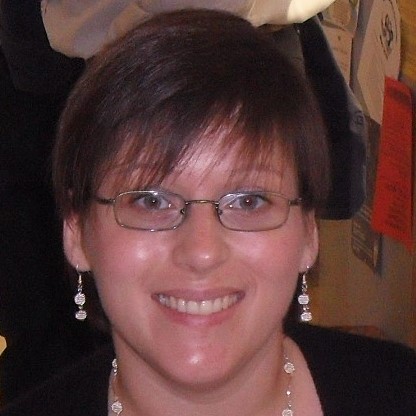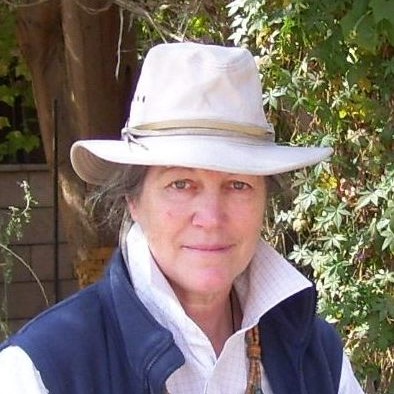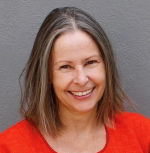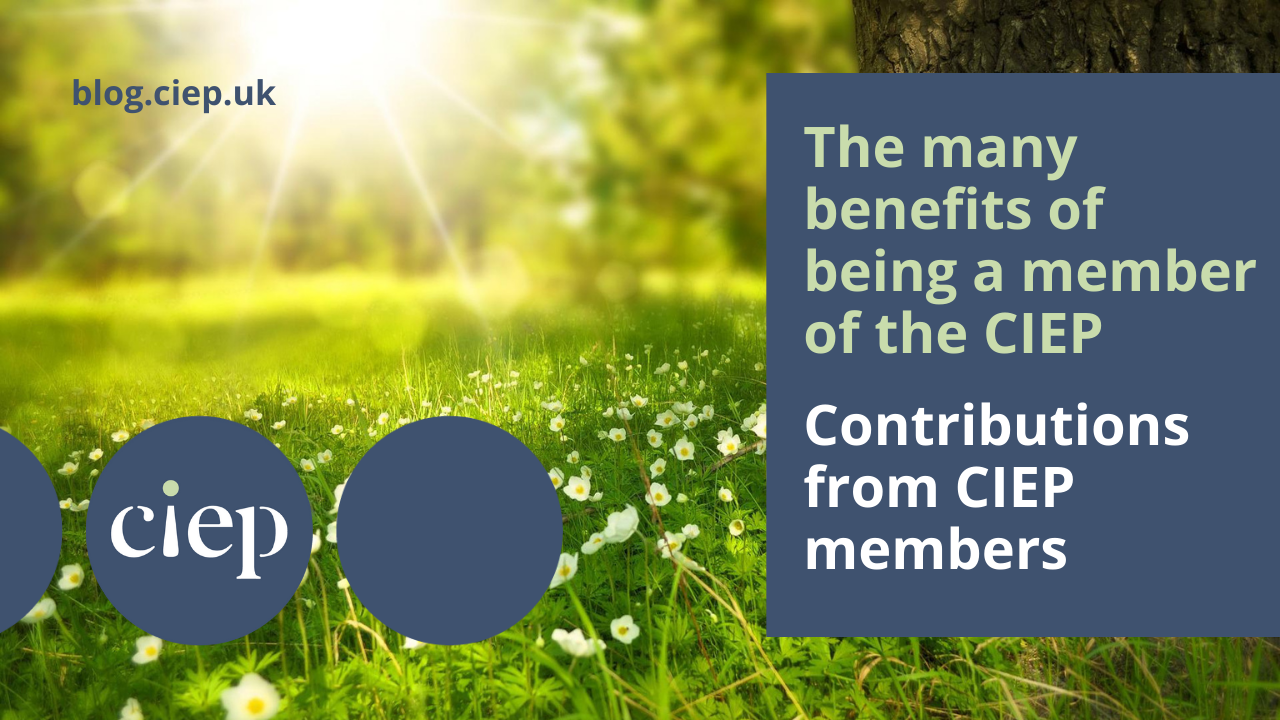Once again it’s that time of year when we’re asking CIEP members to renew their membership. If you’re a CIEP member who can’t quite decide whether to renew or not, perhaps the five editors below can persuade you it’s worth it …
Laurie Duboucheix-Saunders
 I have been a member of the CIEP – back then it was the SfEP – since I started freelancing in 2008 and I have never considered not renewing. With no professional editorial experience, I found out about the Institute when looking for a training course. Being a member allowed me to gain the skills I needed to become a good proofreader and editor, but remaining a member has allowed me to stay at the top of my game. Even though I am an Advanced Professional Member, I still benefit from doing courses with the CIEP, to refresh what I know or to keep up with an industry that keeps changing.
I have been a member of the CIEP – back then it was the SfEP – since I started freelancing in 2008 and I have never considered not renewing. With no professional editorial experience, I found out about the Institute when looking for a training course. Being a member allowed me to gain the skills I needed to become a good proofreader and editor, but remaining a member has allowed me to stay at the top of my game. Even though I am an Advanced Professional Member, I still benefit from doing courses with the CIEP, to refresh what I know or to keep up with an industry that keeps changing.
That’s not even what’s best about the CIEP. Being a member is not just about having the CIEP’s ‘seal of approval’ (read ‘logo’), it’s about belonging to a community that supports you and challenges you. The forums are a great place to go when you’re stuck and need the hive mind’s input. There’s always someone who can help you find the answer you need or point you in the right direction. The CIEP’s knowledge pool is vast, and chances are someone will be able to answer your questions about martial arts or architecture or nuclear fusion, as well as help you locate an obscure rule in a style guide so large you wonder what sort of mind it takes to come up with so many different rules about commas and full stops.
The CIEP is part of my daily life. Thanks to it, I have met people, online or in real life, who have become colleagues and friends I interact with every day. Being a freelancer can be a lonely business and the CIEP’s support (legal helpline, suggested minimum rates) is invaluable, but its members are what makes it indispensable.
Pedro Martin (Sanderling Editorial)
 Renewing my CIEP membership is a no-brainer. I ended up getting my biggest client so far – both in terms of repeat work and total billable hours – from the ‘marketplace’ forum, so my membership definitely paid for itself.
Renewing my CIEP membership is a no-brainer. I ended up getting my biggest client so far – both in terms of repeat work and total billable hours – from the ‘marketplace’ forum, so my membership definitely paid for itself.
I really appreciate how useful it is for people who are new to freelancing. I joined as a Professional Member with in-house experience, so I felt confident on the editorial side of things, but I was so clueless about transitioning to freelancing! Navigating your first few months as a freelance copyeditor and proofreader is especially tricky, so it’s great having access to so many knowledgeable and experienced editors who are happy to help with your questions.
And that’s on top of all the other membership benefits (like free guides for members, discounts on editing software and subscriptions, and the forums in general). I look forward to another year of advice, training, CPD, discounts, collegiality, resources and support for copyeditors and proofreaders with the CIEP!
Janet MacMillan
 There are so many reasons why I’m renewing my CIEP membership: the vibrant forums where you can get an answer to what’s on your mind day or night, the highly respected training and continuing professional development, the enquiry- and work-producing directory, the helpful guides and fact sheets, the mentoring and the standards, among other things.
There are so many reasons why I’m renewing my CIEP membership: the vibrant forums where you can get an answer to what’s on your mind day or night, the highly respected training and continuing professional development, the enquiry- and work-producing directory, the helpful guides and fact sheets, the mentoring and the standards, among other things.
But the fundamental reason for me is the community. The CIEP community has helped me through thick and thin, especially in the last couple of years when we’ve all been struggling through plagues, war/political conflicts, earthquakes, blizzards, fires and even loo roll shortages.
The fact that I have so many lovely colleagues all over the world is a true joy, and that I can see and chat to at least 20+ of them every week is an incomparable pleasure. I see community members boosting each other up, both professionally and personally, taking pleasure and pride in each other’s successes, supporting one another in all that the world throws at us, and doing gentle kindnesses for each other.
The gorgeous card someone sent me earlier this year, the gratuitous offers of help with work and CIEP commitments when I faced trying caring responsibilities recently, the unexpected, but touching, comment on my first haircut in over two years, the entertaining GIFs someone likes to send, the ridiculous jokes and banter among members on social media, members travelling long, long distances to meet up, so many members working so hard for the common good, are all part of the CIEP community. To paraphrase a mid-2021 comment by a colleague in an international Cloud Club West Zoom meeting: the fact that I retain any semblance of sanity is, to a huge extent, thanks to the CIEP community. I wouldn’t be without it!
Caroline Petherick
 I’ve subscribed to CIEP since the early nineties, and right from the start – even before I managed to access the infant internet – I found the sub worthwhile, because by being a paid-up member I got relevant training, hence confidence in what I was doing, combined with the expertise of some experienced editors one to one. That helped me start my business, even though for the first few years it was slow. Then, since around 2000, with the developing range of resources and support that the CIEP has provided, membership has been intrinsic to the success of my business and (particularly with the forums) to my enjoyment of life at the laptop. I can’t imagine being without the CIEP.
I’ve subscribed to CIEP since the early nineties, and right from the start – even before I managed to access the infant internet – I found the sub worthwhile, because by being a paid-up member I got relevant training, hence confidence in what I was doing, combined with the expertise of some experienced editors one to one. That helped me start my business, even though for the first few years it was slow. Then, since around 2000, with the developing range of resources and support that the CIEP has provided, membership has been intrinsic to the success of my business and (particularly with the forums) to my enjoyment of life at the laptop. I can’t imagine being without the CIEP.
Alex Mackenzie
 In a face-to-face conversation recently I found myself describing why our virtual CIEP network is so valuable to me. No, we’ve never met in person, but we are in weekly (some of us daily) contact. Our online video meetups – Cloud Club West (CCW) – is where (mostly) international members meet for professional support and online company.
In a face-to-face conversation recently I found myself describing why our virtual CIEP network is so valuable to me. No, we’ve never met in person, but we are in weekly (some of us daily) contact. Our online video meetups – Cloud Club West (CCW) – is where (mostly) international members meet for professional support and online company.
Working from home is isolating anyway, and in this profession things can get pressurised and tense, with moments of complete loss and mind-boggling confusion. (The usual culprits: misbehaving tables, testy authors, a slow month, quirky layout, low motivation, time management, technology bugs, scope creep, grammar, ethics and copyright, to name a few). We need to reach out to like-minded people sometimes.
Two years ago, CCW spawned another smaller accountability group comprising seven members who spur each other on to market ourselves and get more clients. Both groups share personal and professional stories (even displaying our pets, children, artwork and knitting) – the CIEP membership makes this possible. (Read more in our blog post.)
What I value is the breadth of experience in editing and proofreading, from newbies to Advanced Professional Members. Being reflective about language is what many of us have always enjoyed (we speak close to 20 languages, from Afrikaans to Luxembourgish). But we come at it from all angles (history; environmental and social sciences; role-playing games; politics; law; economics; education; maths and statistics; chemistry, as well as English literature and linguistics). And we are spread across the globe – in diverse personal contexts – with fascinating stories to tell.
This means there’s always someone to offer advice, answer a query or point towards an alternative approach. This is an excellent professional resource and I always have a running list of queries for the next meeting. As we all value investing in high-quality CIEP training, we recommend courses to each other, and sometimes buddy up to work through them together too. And it’s nice to put faces to names when they pop up in the forums.
I know I speak for many in the CIEP when I say, the professional network is a major pull for continuing our membership.
 About the CIEP
About the CIEP
The Chartered Institute of Editing and Proofreading (CIEP) is a non-profit body promoting excellence in English language editing. We set and demonstrate editorial standards, and we are a community, training hub and support network for editorial professionals – the people who work to make text accurate, clear and fit for purpose.
Find out more about:
Photo credits: woodland by Larisa_K on Pixabay.
Posted by Harriet Power, CIEP information commissioning editor.
The views expressed here do not necessarily reflect those of the CIEP.



 Anya Hastwell
Anya Hastwell
